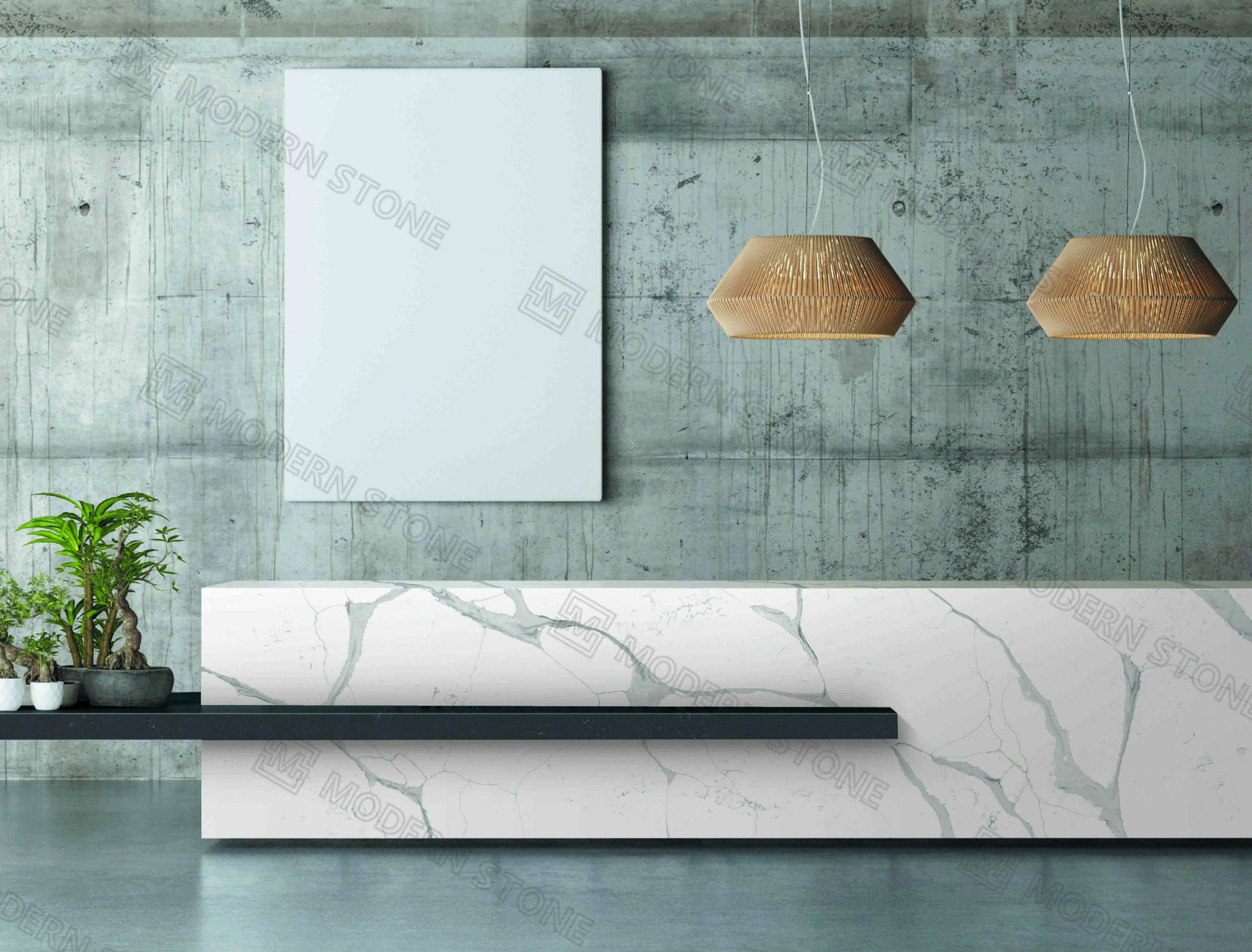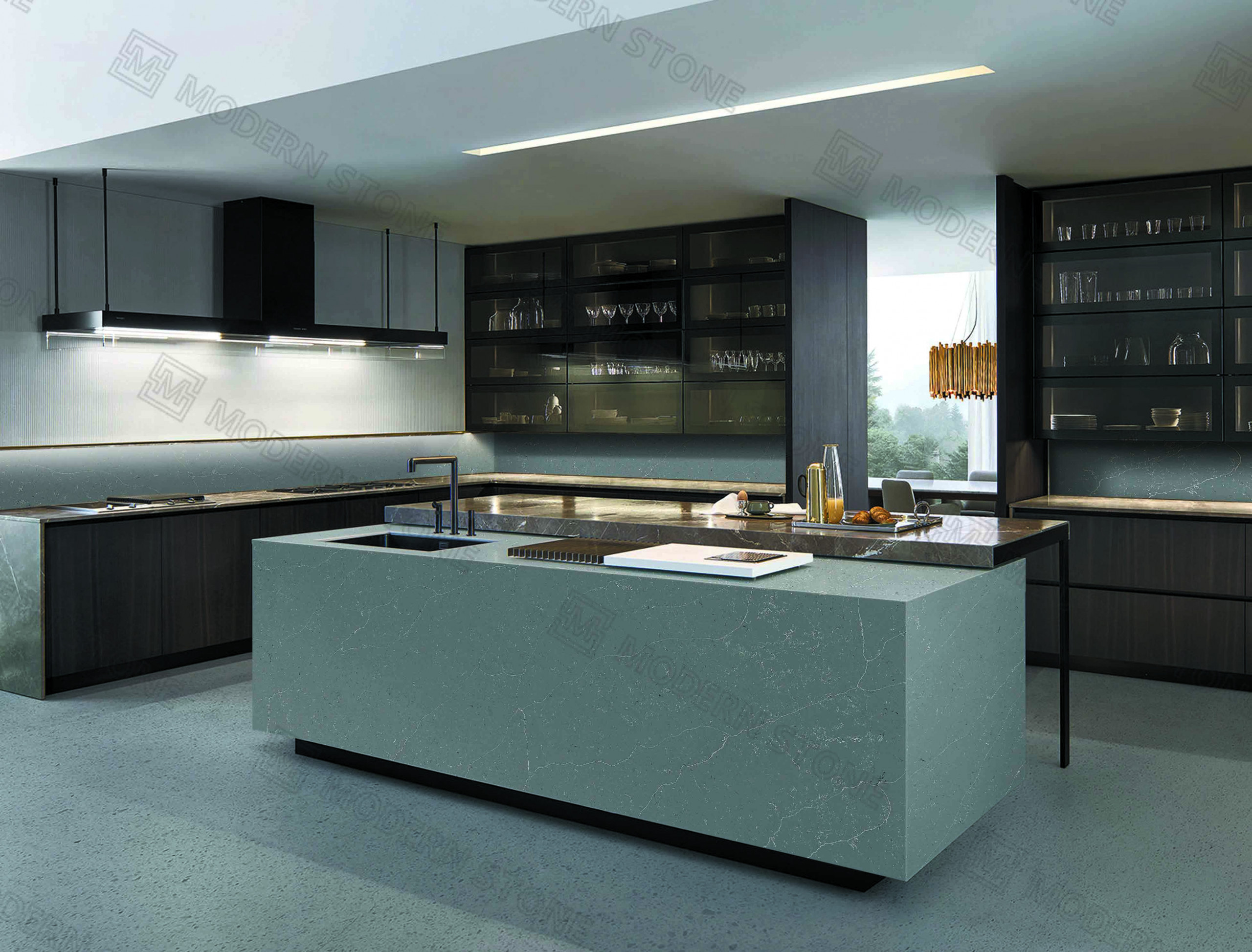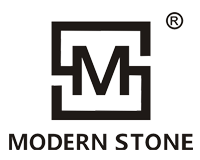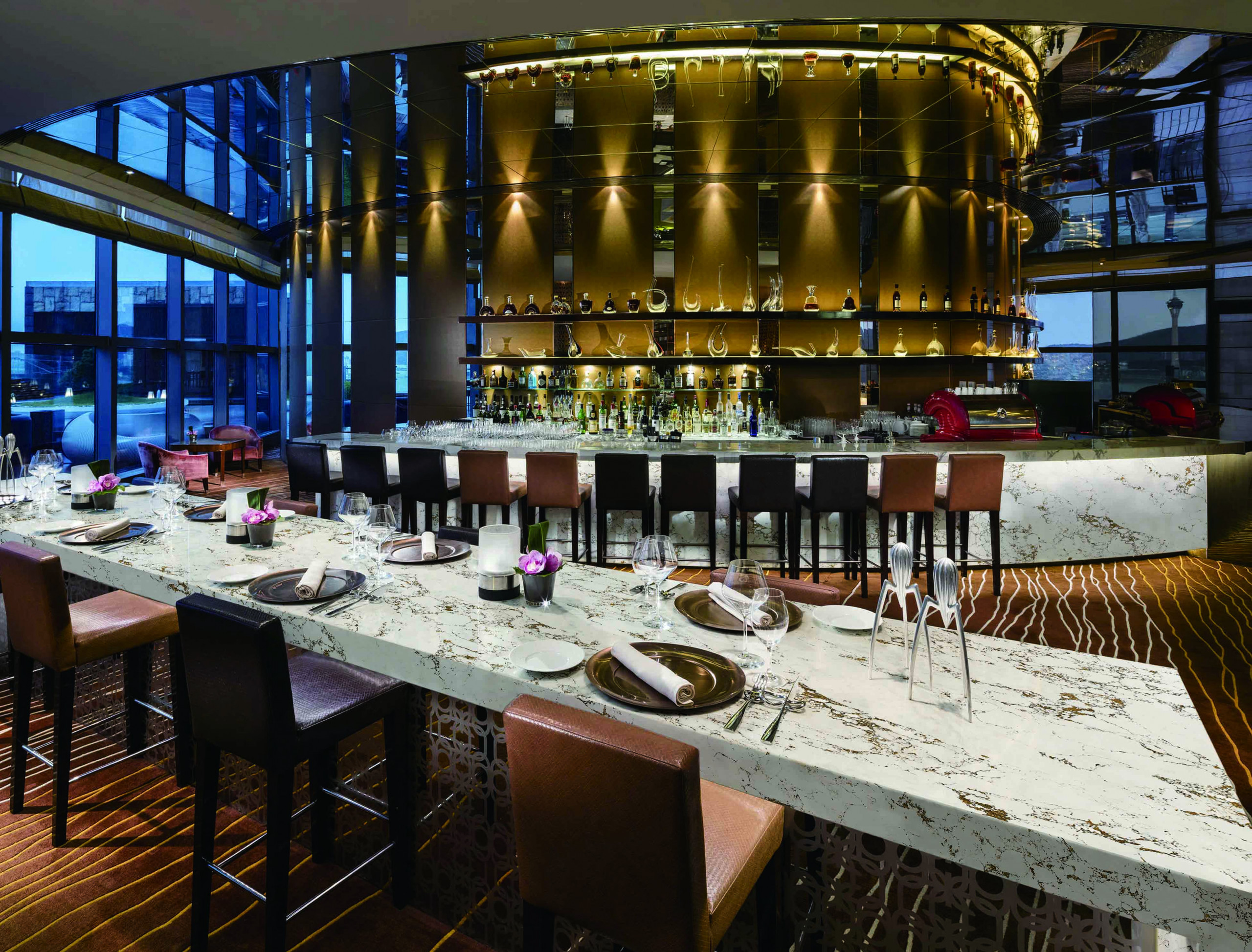It is a common phenomenon that an increasing number of people pursue installing granite or quartz countertop slabs in their homes or other places like bars, shops, and receptions. The hot debate of whether to choose granite or quartz countertop slabs raises people’s attention. Enthusiasts love to talk about the pros of their preferred countertop type.
However, is there any reasonable difference between the two? Even though both the countertop materials are used in households and commercial projects, there are some key differences you should be aware of. Differentiating between these two could be tricky, and most people are still confused about the topic. Thus, this article aims to clear up everything. Let’s dive in.

Granite vs. quartz countertop slabs: what are they?
Before introducing the differences between granite and quartz countertop slabs, let’s clarify what they are. On the one hand, granite slabs are natural pieces of stone. The material is mined from the earth, then sawed into slabs to be used as countertops. Additional polish is also done to improve the texture and shape of the slabs.
On the other hand, quartz countertop slabs are regarded as “engineered stone.” Unlike granite, quartz stone slabs are manufactured by humans artificially, but the major material being used is natural. It combines quartz and polymer to create a look. Some quartz stone slabs, especially products from Modern Stone, will provide white quartz slabs that feel like natural stone slabs. An increasing number of people tend to purchase quartz countertop slabs due to their durability and water-resistant.
Granite vs. quartz countertop slabs: what are the differences?
After figuring out their definitions, we will talk about their differences. Granite and quartz countertop slabs differ in many important details. Let’s discuss them one by one.
1.Appearance
Both the countertop materials look good to some extent. It is because they have their natural, stoned appearance that enhances the decency of every room they’re used in.
However, quartz countertop slabs are more versatile in the way they look. That’s because artificial color pigments are used in the construction of quartz countertop slabs. It enables them to have more color and texture choices available to customers. For instance, Modern Stone, a capable quartz stone slabs supplier, will offer you various colors such as white, black, gray, etc. Not only that, but we still provide you with different textures that will enhance the beauty of your place.
2.Durability
When it comes to durability, quartz countertop slabs have an obvious advantage. That’s because granite slabs are more brittle in their construction, making them more vulnerable to damage. Furthermore, granite slabs get stained easily because they don’t have the same color repellent properties as quartz countertop slabs.
On the other hand, quartz countertop slabs are not brittle, making them less prone to accidental damage. Even under rough usage, they will maintain their shape and keep sturdy and durable. Thus, quartz countertop slabs are more durable than granite slabs, making them suitable for longer periods.

3.Maintenance
When granite slabs are being installed, they need to be sealed in place by the installation team. Furthermore, they need to be resealed regularly, which makes them a high-maintenance countertop solution.
Quartz countertop slabs, on the other hand, don’t require that same level of maintenance. Quartz stone slabs are hard to scrape and impervious to stains. Normally, the liquid material such as acid, shampoo, or others we use every day won’t permeate its interior. We only need to use clear water to wipe the dirty with a dishcloth. The surface of the quartz countertop slabs is as bright as the newly installed table, even after a long time of usage.
4.Price
Granite and quartz countertop slabs also differ in the price ranges they come in. Normally, the cost of a granite or quartz countertop slab depends on the thickness of the color, the slab, and the edge profile, which includes square, beveled, or rounded. But except for the cheapest granite, the quartz stone slab is less expensive —$50 to $100 per square foot compared with granite that ranges from $60 to $270 per square foot. If you want to decorate your places in a large square, quartz countertop slabs are suitable for your cost.

All in all, compared with the various aspects we discussed above, quartz stone slabs are a better choice than granite slabs. They are more durable, have better resistance to stains, have more color options, require dramatically lower maintenance, and have more value of money when compared to granite slabs.
Conclusion
After clarifying the differences between granite and quartz stone slabs, it is easy for you to figure out quartz countertop slabs are more suitable for your places. If you’re trying to find a reliable, top-rated seller of quartz countertop slabs, don’t forget to have a look at Modern Stone.
At Modern Stone, we sell some of the finest quality quartz countertop slabs in the market. We have a wide variety of textures and colors available to match your unique interior needs. You can check out the entire product line of Modern Stone’s quartz countertop slabs by clicking here. If you are enthusiastic about our products, be sure to get in touch with us immediately. We are prepared to solve all of your questions with the best service.


